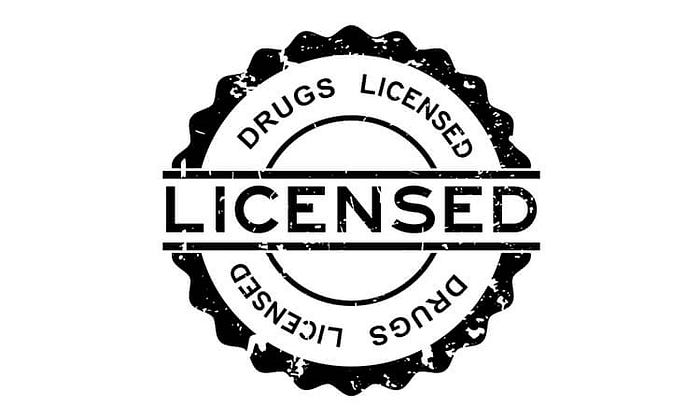Silvereye Certifications - your authoritative pathway to achieving and maintaining industry compliance with precision and trust.
OPERATING WITHOUT A DRUG LICENCE? HERE’S WHAT’S AT STAKE

In the world of pharmaceuticals, for the sale and distribution of any kind of medication, a government-approved drug license is required. This drug license is usually issued by the local or national health authorities, such as CDSCO; this license issued by them serves as official permission to legally sell drugs in each region. Without this license, if any business is found to be engaged in the sale and distribution of the pharmaceuticals, it is then considered to be operating illegally. The implications of not having a drug license for the trade are considered to be operating illegally and are punishable. The implications of not having a drug license could be harmful for the business as well as the consumers.
Why is a Drug License important?
A drug licence is not just bureaucratic red tape; it is considered to be a safeguard for public health. Government agencies regulate the issuance of drug licenses to registered and trusted professionals for the sale, distribution, and storage of the specified drugs. This helps in making sure that the drugs are handled by professionals and the drugs are not traded illegally. This oversight helps to prevent the sale of counterfeit or unsafe products, ensuring that only quality, tested drugs reach consumers. In brief, we can say that a drug license is a mark of legitimacy and trust.
Without the drug licence, a business operating in the sale, storage, and distribution is essentially unregulated in the eyes of the law. These businesses that are running without a proper licence pose a high risk for everyone involved, from the producer to the consumer, who rely on these medications for their health and wellbeing.
Legal Consequences of Selling Drugs Without a Licence
Operating without a drug license is considered illegal, and it can lead to severe penalties, including:
FINES AND PENALTIES:
Regulatory authorities, if they find out someone is dealing the drugs without a proper license, have the authority to impose hefty fines on those businesses. The main intention to impose these fines is to discourage the unauthorised drug sellers, especially given the potential health risk to the public.
CLOSURE OF BUSINESS
If the authorities find out about the illegal trade of the drugs in the market, they have the power to shut down the businesses that are operating without a drug license. They may also check all the stock held by the company, and they can confiscate all the stock and all the other assets if the business is found to be in violation of the law.
Legal Action and Imprisonment
If the company is selling the drugs without a license, it can lead to criminal charges. Depending on the jurisdiction, the penalties can include imprisonment for the owners or those responsible for the business operations.
Damage to Reputation
These legal consequences can cause major damage to the reputation of a company, as once the word is spread into the market that a business has been operating into a drug business without a proper license, customers and business partners may be hesitant to trust them. The long-term damage to the company’s reputation can be a big issue, and it might be hard to recover from.
Impacts on Health and Public Safety
One of the primary reasons for the drug licensing is to ensure that the public is safe. When the drugs are sold to the public without oversight, there is no way to verify that the drug is safe for public use and how the quality is and where the good being originated. This problem could lead to the distribution of counterfeited or substandard drugs, which might be ineffective or even harmful. In the worst case, patients who consume these drugs can face several health complications due to the improper storage of the drugs and a lack of quality control.
Financial Losses and Business Instability
The financial consequences of operating a drug business without a properly government-recognised license could be very severe. Not only can a business face fines and legal fees, but it also loses the ability to legally sell drugs and may result in a complete halt to operations. Additionally, it may lead to further revenue loss as the partners may back out of the business. For small businesses, the consequences can be especially difficult, potentially forcing them to close their business permanently.
Copyright Notice All content on this blog, including text, images, and graphics, is the property of Silvereye Certifications and Consulting Services Pvt. Ltd. and is protected by copyright laws. Unauthorized reproduction, distribution, or use of this material without written permission is prohibited and may result in legal action. If you wish to share or reference our content, please credit Silvereye Certifications and Consulting Services Pvt. Ltd. with a link to the original post. Thank you for respecting our intellectual property rights.
Enquiry Now!!
- Get in touch, and expect a call from us within 30 minutes.

